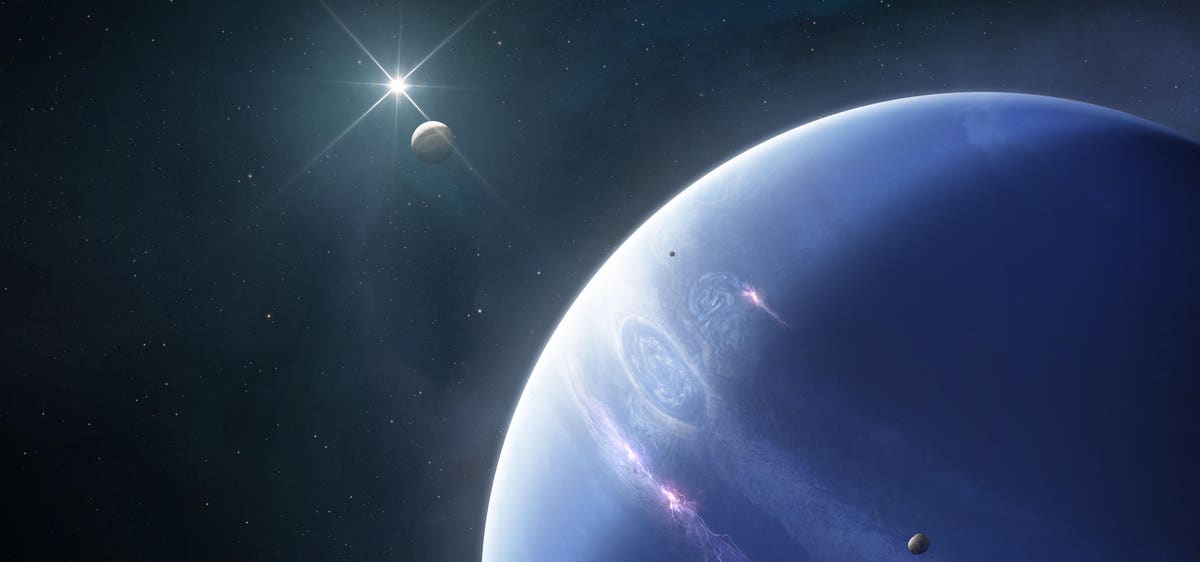If you have a good pair of binoculars then this weekend—specifically the evening of Friday, August 4 and throughout the night—offers a rare opportunity to find Neptune.
The eighth and farthest known planet from the sun (at 30 times further than the Earth-sun distance), Neptune is not an easy planet to get a fix on. In fact, unless you have a large motorized “go-to” telescope that can do all the hard work for you then you will probably have never laid eyes on the blue-green planet.
An “ice giant” planet about 17 times the mass of Earth, Neptune is impossible to see with the naked eye.
This weekend Neptune will appear to be very close to the moon—and at a very convenient time.
When to See Neptune This Weekend
On Friday, August 4, 2023 the moon will rise an hour or so before midnight (check the moonrise times where you are). As it does, the moon will be about 83%-lit and Neptune will be to the moon’s upper right.
The distance between them will reduce overnight, so you can look during the night well into Saturday, August 5.
How to See Neptune This Weekend
You need a good pair of binoculars—something like 10×42 or 10×50. With those in hand, the moon and Neptune should fit into (or almost) the same field of view.
It will help if you know the exact position of Neptune with regard to the moon, so hop on to an online planetriaum like the Stellarium Web Online Star Map and take a look.
“Once the moon and the starfield are located, move the binocular slightly so that the moon is outside the view,” advises astronomer Jeffrey L. Hunt on When The Curves Line Up. “Resembling a dim aquamarine star, find it compared to the brighter stars in the field.”
You may find the moonlight is very strong, but keep looking for Neptune.
Best Time to See Neptune
Although it being close to the moon presents a great opportunity, the very best time to see Neptune is through a large telescope when the planet reaches its annual opposition on September 19, 2023.
That night—when Earth is between the sun and Neptune—puts the two planets at their closest. Neptune is therefore both bigger in the night sky and also brighter because its disk is 100% lit by the sun from our point of view.
Wishing you clear skies and wide eyes.
Read the full article here




